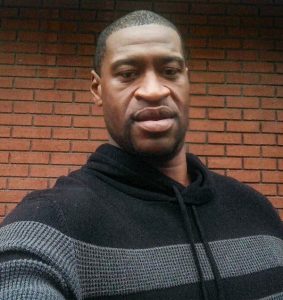
It has been a horrific few months for black people. I’ve seen this perspective.
In truth, it has been a dangerous world for black people for centuries.
Who made it dangerous? White people.
Who keeps it dangerous? White people.
Who can change it? Yup, you guessed it, White People.
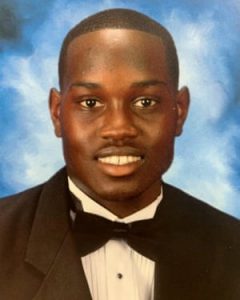
I’m an ally. I know I’m going to get things wrong, but I am not going to sit quietly just in case. I’m using my voice.
During this lockdown period, when there is less going on in the world to distract us, we have collectively really noticed the killings of unarmed black Americans Ahmaud Arbery (killed by a retired police officer and his son while out for a run) and Breonna Taylor (shot in her bed by police) and George Floyd (suffocated by a police knee to the neck in broad daylight). There have been countless others over the years, and it often feels like it all happens in America, but it’s not as isolated as we might like to think. Let’s not forget Stephen Lawrence who was murdered in a racially motivated attack in London in 1993.
I want to talk about what we can do to help.
In the immediate term, there’s social media. This is more important than you might think. If you are posting about racism and being anti-racist on social media, and sharing other people’s posts, you are signalling to your circle of influence that you are paying attention and that you care. If you are scared to get it wrong and say the wrong thing, or just struggling to string the feelings into words, share other people’s posts. Let other people who have the eloquence speak for you by helping to spread their words, particularly when those people are black and speaking of their lived experience.
The next step is to educate yourself. I know, the urge to call up every black person you’ve ever met and ask them for advice on how to be a better person is going to be strong, but fight it. Black people and people of colour already shoulder the burden of living in a world where they are oppressed by our white privilege (whether we think we are part of the problem or not), they don’t also need to shoulder our guilt.
Once you’ve started educating yourself, share what you’re learning. You might be surprised who is listening, who you inspire to go and do their own work and the impact you can have on the world by opening your mind and then your mouth.
I’m on this pathway, and I’m no expert, but I’m consciously trying to work on myself and improve my advocacy skills because equality should be universal. Racism feels like an obvious place to start.
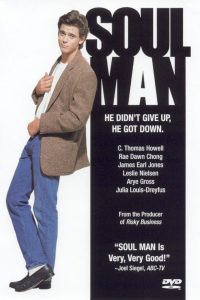 My interest in the black American experience goes back to childhood. My brother and I rented a video one day called Soul Man. It’s a 1980s American comedy about a rich white teenager whose parents cut him off suddenly as he’s about to go to college (university). He finds an unclaimed scholarship for black students and applies for it, taking vast quantities of tanning pills so that he fits the description. I am guessing it was either a box office flop, critically panned or is just too awkward because of subject matter and makeup, because it never seems to pop up on TV, but it had one core message that was really valuable. Most of the details of the plot I have forgotten – it has been thirty years – but there’s a scene at the end that has never left me.
My interest in the black American experience goes back to childhood. My brother and I rented a video one day called Soul Man. It’s a 1980s American comedy about a rich white teenager whose parents cut him off suddenly as he’s about to go to college (university). He finds an unclaimed scholarship for black students and applies for it, taking vast quantities of tanning pills so that he fits the description. I am guessing it was either a box office flop, critically panned or is just too awkward because of subject matter and makeup, because it never seems to pop up on TV, but it had one core message that was really valuable. Most of the details of the plot I have forgotten – it has been thirty years – but there’s a scene at the end that has never left me.
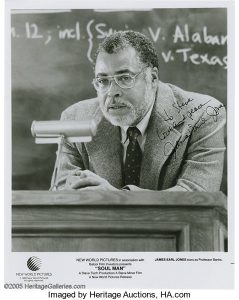
“- Professor Banks: You’ve learned something I can’t teach them. You’ve learned what it feels like to be black.
– Mark Watson: No, sir.
– Professor Banks: Beg your pardon?
– Mark Watson: I don’t really know what it feels like, sir. If I didn’t like it, I could always get out. It’s not the same, sir.
– Professor Banks: You’ve learned a great deal more than I thought.”
When Facebook entered my life in my 30s, I would see sporadic bursts of posts around high profile incidents like the shooting of Jean Charles de Menezes by police in London. From America there were cases like Philando Castile and Travyon Martin. Nothing ever seemed to change though, the focus would be short-lived and everybody would move on to something else.
As with many others, I thought Obama’s election was going to be game changing and that America was suddenly remembering its ideals of freedom and equality, or even just truth and justice. Instead the opposite appears to have happened. When his second term was up and he and Michelle had to leave the White House, the American voters turned 180 degrees and elected Trump. Trump’s isolationist rhetoric and incoherent rambling repetition of slogans apparently still appeal to a large number of Americans. He seems to court the support of the evangelical Christians and white supremacists more than other groups of his countrymen. Remember when he referred to a bunch of neo-Nazis as “very fine people”?
 Racism in America is so much more obvious than in the rest of the world, because it is backed up with so many guns. There is a body count, and it is horribly high. Yes, there are violent criminals who are also black. There are also violent criminals who are white. The key difference here is the assumptions made about black people, particularly black men, before they have done anything. White heavily armed protestors can get up close and personal with riot police and nobody gets shot. Black unarmed protestors get tear gassed, shot, beaten and from footage I saw earlier this evening have even had police vehicles and horses set upon them. There is no parity in the way they are dealt with.
Racism in America is so much more obvious than in the rest of the world, because it is backed up with so many guns. There is a body count, and it is horribly high. Yes, there are violent criminals who are also black. There are also violent criminals who are white. The key difference here is the assumptions made about black people, particularly black men, before they have done anything. White heavily armed protestors can get up close and personal with riot police and nobody gets shot. Black unarmed protestors get tear gassed, shot, beaten and from footage I saw earlier this evening have even had police vehicles and horses set upon them. There is no parity in the way they are dealt with.
I have seen and heard people responding with the “but why are you lumping all white people together? I judge individuals by their actions” and of course the catch all of “all lives matter”. I challenged somebody who commented on a thread I was involved in who appeared to be a middle aged white man. He came out with the first of the responses above, followed by “I pray God will solve this”. It’s intellectual laziness, and frankly if God was going to solve racism, don’t you think he’d have done it by now?
He said “I’m sure this will get hate responses” but he didn’t. He got a response from me, pointing out that what he’d said in response to the black original poster was exactly why all white people need to understand what white privilege is. I made it clear I was a white person who had done the work asking another white person to do the same. His response? He deleted his comment entirely. The mere thought of having to look at himself and his privilege was too much to bear.
Black people don’t have the option to be intellectually lazy about racism.
That we, as white people, have that choice… it’s just one facet of our white privilege that we can choose to acknowledge, or not.
So, what took me from the kid who enjoyed Soul Man to the adult who challenges people to do the work?
Just over a year ago, my journey took a steep hike on the learning curve.
I run a book club alongside my membership, with a remit to read books that are written by, about or to make us more totally awesome women. One of the titles put forward for last year was White Fragility. It’s hard for me to put into words how much that book affected me and continues to come up in my conversations. Robin DiAngelo is white American diversity trainer. Some of the specific content was hard to relate to because it was focused on the American experience, but the key messages are vitally important.
White people find racism difficult to talk about because they find it difficult to accept their part in it. I grew up with an impression of racism that has visuals of the KKK in their cowardly white hoods burning crosses in the Deep South of America. It was extreme. It was also very much about bad people doing vile things “over there” and not something we were part of.
Breaking down this simple image, I grew up equating racism with direct active overt things said and done by bad people, over there. To be confronted by the idea that I was actually part of the problem was pretty shocking.
I grew up with the “we don’t see colour” and “yes they’re black but don’t say they’re black though because that’s offensive” social norm. I thought this was me doing my part as a non-racist. To be confronted by the idea that this was actually part of the problem was also pretty shocking.
In actual fact, for many black rights activists, white progressives are more of a hindrance than anything else. We think we are doing the right things, so we don’t look under the rug and do the work, so we never actually understand that the racism we need to fight is systemic.
Systemic sounds like a big scary job right?
Simply put, women didn’t get the vote by demanding it. Women got the vote by convincing men that they needed to be invited to the table, because the system needed to change.
People of Colour won’t get equality by demanding it, or even by asking nicely. They will get it when white people understand that it is our role here to invite people of colour to the table.
How can we do that?
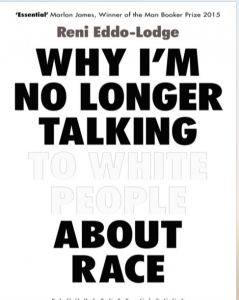 Read books written by black authors.
Read books written by black authors.
- I consciously followed White Fragility with Why I’m No Longer |Talking To White People About Race because it was written by Reni Eddo-Lodge, a black woman who as a bonus was also British and speaking about a cultural backdrop that felt slightly closer to home. I also hugely recommend this book. There was so much history about Black Britain that I didn’t know. It inspired me to go and search out other sources and I found the documentary series on BBC iPlayer Black and British: A Forgotten History delivered by David Olusoga.
- We followed that with Me & White Supremacy by Layla F Saad. I found the way she broke down the definitions like white silence very helpful, but wouldn’t recommend this being where you start.
- Watch movies made with black writers, black directors and starring black actors.
- Black Panther was one of my favourites in the Marvel superhero movie series. The added importance of it as a piece of mainstream media that portrayed positive black role models wasn’t lost on me. We need more of this.
- Disney are making headway. The casting of the central trio in the last Star Wars trilogy was pretty balanced – white girl as the last jedi, black man as the rebel ex stormtrooper, latino man as the crack pilot. John Boyega’s Finn is another positive black male role model.
- Seriously, google “black movies” – there are some fun classics like Bad Boys, and gruelling gut wrenching historicals like Twelve Years A Slave
- If you’re hiring, and there’s a candidate who looks qualified but you’re put off by the top line of their application, ask yourself why. Yes, some names are terrifying to look at and you have no idea how to pronounce them. Instead of just not inviting that candidate for interview, maybe ask them how you pronounce it because you want to get it right?
- I spent years correcting people on how to pronounce Rhiannon and eventually found a happy medium between the people who I knew wanted to get it right but just couldn’t (like my late mother in law ry-ann-en) and the people who just chose their own version of my name and stuck with it whether I liked it or not (my French teacher Ri-un-nn). In nightclubs I would offer “Rhi” and instantly become “Marie” because of background noise – always fun if it got to phone number swapping! The thing is, I always appreciated people trying. And if they asked a thousand times because they couldn’t remember, I preferred that to them just choosing their own version and expecting me to be fine with it.
- Looking for a new VA or graphic designer or printer or some other service? Look for the option to support a business run by a person of colour.
These are just a few ideas as a starting point.
Incidentally, I was born in Australia and spent the first half of my childhood there. What we learned in school about the Aborigines (it was the 1980s, so I hope things have moved on) was that they were primitive, made dot paintings, and that lots of them died when the white men came because of diseases and alcohol. I had no idea about the massacres until many years later. I knew about the abhorrent treatment of the Native Americans before I understood about how my own indigenous people had been treated.
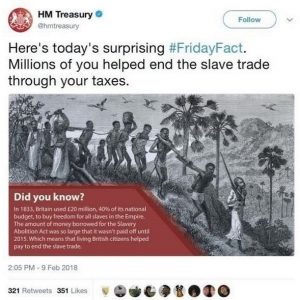 It is so tempting to look at America and think ‘that is the seat of the problem, so if we’re not American why should we put ourselves through this searching inventory taking process?’ … I challenge you to dig into the slave trade and which countries were involved… I challenge you to consider that if you paid tax in the UK before 2015 you were paying towards the reparations paid to the British slave owners when the trade was abolished. The freed slaves got less than nothing, the money was compensation for lost “property”…
It is so tempting to look at America and think ‘that is the seat of the problem, so if we’re not American why should we put ourselves through this searching inventory taking process?’ … I challenge you to dig into the slave trade and which countries were involved… I challenge you to consider that if you paid tax in the UK before 2015 you were paying towards the reparations paid to the British slave owners when the trade was abolished. The freed slaves got less than nothing, the money was compensation for lost “property”…
I’d love to hear your thoughts Xx
Leave a Reply